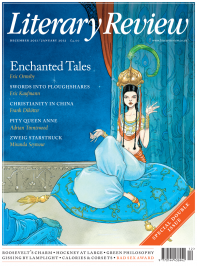David Caute
The Wreck of the Albertina
Who Killed Hammarskjöld? The UN, the Cold War and White Supremacy in Africa
By Susan Williams
Hurst 306pp £20
In June 1961 the late Conor Cruise O’Brien was sent by UN Secretary-General Dag Hammarskjöld as his personal representative to the Congo’s mineral-rich province of Katanga, where Moïse Tshombe had declared secession, backed by Belgian forces and the mining companies headed by the Union Minière. Five years later I went to work for Cruise O’Brien at New York University, where he had become Albert Schweitzer Professor, and got to know this brilliant, witty, subversive Irish intellectual, whose appetite for conspiracy theory had been aroused by the Warren Report on the assassination of John F Kennedy. The American president had clearly been killed by gunfire – but by whom? According to the Warren investigation, it was done by a single assassin, Lee Harvey Oswald. Conor Cruise O’Brien, already the author of To Katanga and Back, a book rich in conspiracies brilliantly unravelled, was not to be taken in. (His surname is in fact Cruise O’Brien, although most writers, including Susan Williams, the author of Who Killed Hammarskjöld?, call him O’Brien – indeed he appears thus in Hammarskjöld’s diaries.)
Kennedy’s violent death had been preceded two years earlier by that of Hammarskjöld himself, and it was odds-on that Conor would come up with a conspiracy theory to prove that the fatal plane crash at Ndola in September 1961 was no accident – not a case of pilot error, but

Sign Up to our newsletter
Receive free articles, highlights from the archive, news, details of prizes, and much more.@Lit_Review
Follow Literary Review on Twitter
Twitter Feed
It wasn’t until 1825 that Pepys’s diary became available for the first time. How it was eventually decrypted and published is a story of subterfuge and duplicity.
Kate Loveman tells the tale.
Kate Loveman - Publishing Pepys
Kate Loveman: Publishing Pepys
literaryreview.co.uk
Arthur Christopher Benson was a pillar of the Edwardian establishment. He was supremely well connected. As his newly published diaries reveal, he was also riotously indiscreet.
Piers Brendon compares Benson’s journals to others from the 20th century.
Piers Brendon - Land of Dopes & Tories
Piers Brendon: Land of Dopes & Tories - The Benson Diaries: Selections from the Diary of Arthur Christopher Benson by Eamon Duffy & Ronald Hyam (edd)
literaryreview.co.uk
Of the siblings Gwen and Augustus John, it is Augustus who has commanded most attention from collectors and connoisseurs.
Was he really the finer artist, asks Tanya Harrod, or is it time Gwen emerged from her brother’s shadow?
Tanya Harrod - Cut from the Same Canvas
Tanya Harrod: Cut from the Same Canvas - Artists, Siblings, Visionaries: The Lives and Loves of Gwen and Augustus John by Judith Mackrell
literaryreview.co.uk